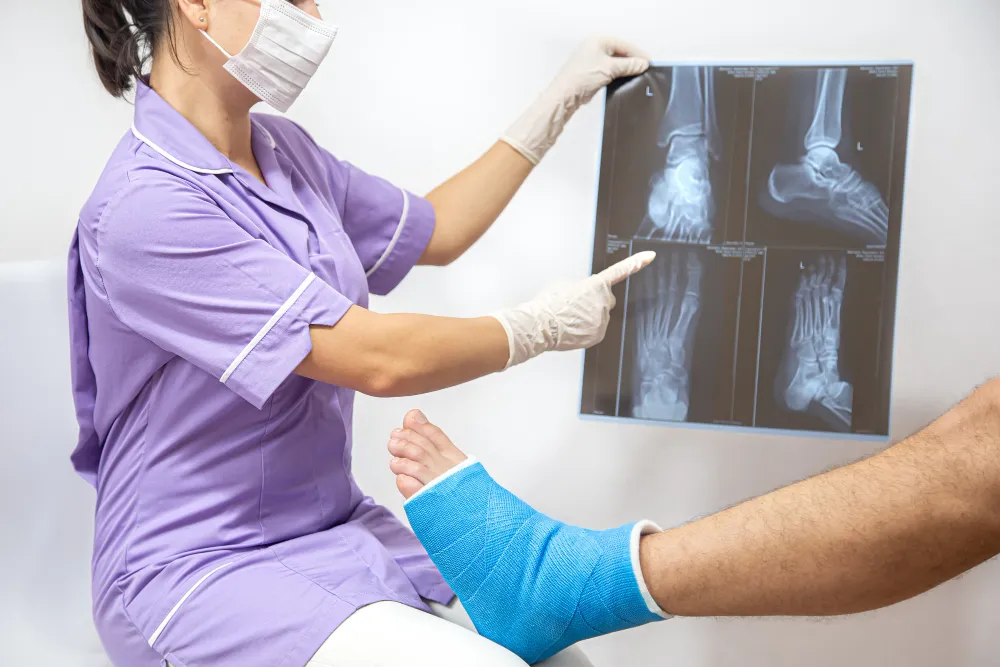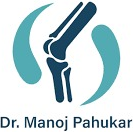Fracture Infection Treatment in Nagpur
Advanced surgical care to eliminate infection, restore bone health, and promote complete, long‑term healing.
What is Fracture Infection Treatment
Fracture infection treatment involves advanced surgical procedures to address complications that occur during bone healing, such as infection, malunion (misaligned healing), or non‑union (failure of the bone to heal). These surgeries aim to remove infection, correct bone alignment, and stimulate proper healing, helping patients regain mobility, reduce pain, and prevent long‑term disability.
These complications can hinder proper healing, leading to prolonged disability, pain, and functional impairment. The surgeries are designed to eradicate infection, correct misaligned healing (malunion), and promote healing in fractures that have failed to unite (non-union).

Conditions Requiring Complex Trauma Surgeries
Complex trauma surgeries are sometimes needed when bone fractures do not heal as expected or are complicated by infection, misalignment, or failure to unite. These conditions can cause pain, loss of function, and long‑term disability if not treated promptly with advanced surgical techniques.
Fracture Infection
A fracture infection (osteomyelitis) occurs when bacteria enter the fracture site, causing inflammation and infection. Surgery is required in cases such as:
- Persistent Infection: Does not resolve with antibiotics alone.
- Abscess Formation: Pus accumulation at the fracture site.
- Sequestrum Formation: Presence of dead bone tissue.
- Implant Infection: Infection around orthopedic implants.
Malunion
Malunion happens when a fracture heals in the wrong position, leading to deformity and impaired function. Surgery is needed when:
- Significant Deformity: Visible or functionally limiting misalignment.
- Pain and Dysfunction: Ongoing pain or reduced function due to improper healing.
- Joint Involvement: Malalignment affecting nearby joint movement.
Non‑union
- Atrophic Non‑union: No biological activity at the fracture site, with no callus formation.
- Hypertrophic Non‑union: Excess callus formation without proper bone bridging.
- Infected Non‑union: Non‑union complicated by infection.
- Persistent Pain and Instability: Chronic pain and instability at the fracture site.
Complete Procedure of Complex Trauma Surgeries for Fracture Infection, Malunion, and Non‑union
These surgeries follow a systematic approach to address complex bone healing complications. The aim is to remove infection, correct deformities, and stimulate proper bone healing while restoring function and reducing pain.
Preoperative Assessment and Planning
Initial Evaluation
- Comprehensive assessment of the patient’s overall condition and detailed history of the fracture and complications.
- Imaging studies (X-rays, CT scans, MRI) and lab tests (blood tests, cultures) to evaluate the extent of the problem.
Multidisciplinary Planning
- Collaboration among orthopedic surgeons, infectious disease specialists, and other relevant healthcare providers to develop a tailored surgical plan.
Surgical Procedures for Fracture Infection, Malunion, and Non‑union
Anesthesia
- General or regional anesthesia, chosen based on the complexity and duration of the surgery.
Debridement and Cleaning (for Infections)
- Removal of infected and dead tissue.
- Lavage (irrigation) of the wound to reduce bacterial load.
Fracture Stabilization
- Internal Fixation: Screws, plates, rods, or nails to stabilize the fracture.
- External Fixation: Temporary or permanent devices, especially in cases with severe soft tissue damage.
Bone Grafting
- Autograft: Bone harvested from the patient (e.g., iliac crest) to promote healing.
- Allograft: Donor bone tissue.
- Synthetic Grafts: Biocompatible materials to fill bone defects and encourage healing.
Correction of Malunion
- Osteotomy: Surgical cutting and realignment of the bone to correct deformity.
- Realignment: Manipulation and stabilization of the bone in the correct position.
Stimulation of Healing (for Non‑union)
- Electrical Stimulation: Devices used to promote bone healing.
- Biological Agents: Growth factors or bone morphogenetic proteins (BMPs) to enhance healing.
Implant Removal and Replacement (if necessary)
- Removal of infected or failed implants and replacement with new ones if required.
Soft Tissue Management
- Repair or reconstruction of damaged muscles, tendons, ligaments, or skin around the fracture site.
Wound Closure
- Closure of surgical incisions and application of sterile dressings.
Postoperative Care and Rehabilitation
Postoperative care is crucial for ensuring complete recovery after surgery for fracture infection, malunion, or non‑union. It focuses on preventing complications, promoting healing, and restoring full function through a structured rehabilitation plan.
Monitoring and Management
- Close monitoring for signs of recurrent infection, proper alignment, and healing.
- Pain management and administration of antibiotics if necessary.
Physical Therapy
- Early initiation of guided exercises to restore mobility, strength, and function.
- Customized rehabilitation programs tailored to the type and extent of surgery.
Follow‑Up
- Regular follow-up appointments to assess healing progress and monitor for complications.
- Additional interventions may be required for any persistent or recurrent issues.
Complex trauma surgeries for fracture infection, malunion, and non‑union address serious complications that hinder proper bone healing. These procedures focus on removing infection, correcting deformities, and stimulating bone repair to restore function and mobility. Success relies on precise preoperative planning, skilled surgical execution, and structured postoperative rehabilitation for lasting recovery.
Advanced Treatment for Fracture Infections
Specialized procedures to eliminate infection, protect bone health, and speed up your recovery.
Frequently Asked Questions
How do I know if my fracture infection is getting worse?
Increasing pain, swelling, redness, pus discharge, or fever may indicate worsening infection and need urgent review.
Can a fracture infection heal without surgery?
Mild cases may respond to antibiotics, but deep or persistent infections often require surgical cleaning and stabilization.
Will the infected bone be completely removed during surgery?
Only the infected or dead portions are removed, preserving as much healthy bone as possible.
How long will I need antibiotics after surgery?
Can fracture infections return after treatment?
Recurrence is possible, but proper surgery, antibiotics, and follow‑up greatly reduce the risk.
How soon can I start moving the affected limb after surgery?
Gentle movement may begin within days, depending on stability and your surgeon’s advice.
Will I need bone grafting during infection treatment?
Yes, if infection removal leaves a bone gap or weak area that needs structural support.
What happens if a fracture infection is left untreated?
It can spread, damage surrounding tissues, and lead to long‑term disability or systemic illness.

